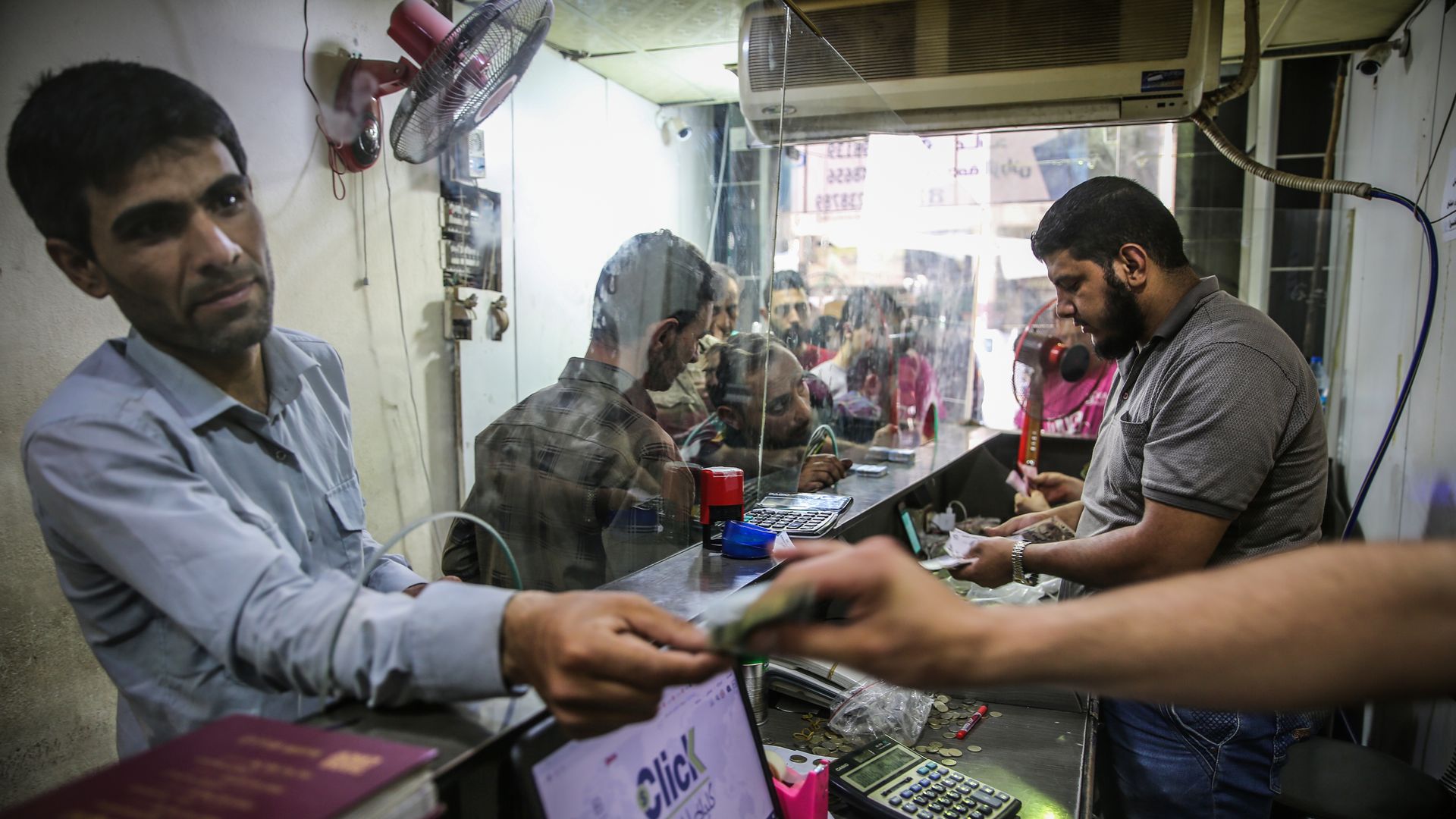U.S. sanctions hit Assad but risk deepening Syria's economic crisis
Add Axios as your preferred source to
see more of our stories on Google.

Buying hard currency, in Idlib. Photo: Anas Alkharboutli/picture alliance via Getty
New U.S. sanctions targeting Syria's Bashar al-Assad regime and those who fund it are likely to increase pressure on the Syrian government and deepen the country's economic crisis.
Why it matters: Assad has survived nine years of civil war, but Syria's dictator now faces protests in the street, a currency shock and internal divisions highlighted by a public feud with his billionaire cousin, Rami Makhlouf. The people of Syria continue to suffer.
Details: The Caesar Act, named for a photographer who secretly documented the regime's humanitarian abuses, targets 39 individuals and entities, many of whom are already under sanctions.
- Assad's wife, Asma, and other members of his family were sanctioned for the first time on Wednesday.
- Secretary of State Mike Pompeo said the sanctions were intended to target "anyone doing business with the Assad regime, no matter where in the world they are." That applies primarily to Assad's patrons, Russia and Iran.
- The administration says the sanctions would be lifted if Assad stopped attacking civilians and addressed humanitarian concerns or agreed to a political transition. Neither seems likely.
The big picture: While the sanctions may increase the pressure on Assad, they'll also deepen the economic crisis facing the long-suffering Syrian people. The downturn has been compounded by an equally deep financial crisis in neighboring Lebanon.
- "Ordinary Syrians, meanwhile, the supposed beneficiaries of Caesar, will see the act push them faster towards famine," writes the FT's David Gardner.
- "Economic sanctions are often a blunt instrument and many analysts fear the Caesar Act might miss its target. Instead, it could deliver a devastating blow to what remains of the Syrian economy after getting on for a decade of war," writes the BBC's Jeremy Bowen.
What to watch: Assad and his backers have won back most of the territory once held by rebels, but much of the country is destroyed.
- "[A]bout a third of the homes have been damaged or destroyed, leaving half the population displaced," writes WaPo's Sarah Dadouch.
- The U.S. and the EU say they won't participate in the rebuilding process as long as Assad remains in office.
The latest: Syria's fast-depreciating pound has made what economic activity is still happening in Syria that much harder.
- Assad has responded to the crisis by firing his prime minister and is attempting to squeeze revenues out of others accused of corruption, including Makhlouf. Protests are now being seen in areas that hadn't previously risen up against Assad.
- "Assad himself seems to have been rattled by scenes from the protest, which are reminiscent of the first uprising against his leadership which triggered the Syrian civil war in 2011," write the Telegraph's James Rothwell and Josie Ensor. He has threatened yet another violent crackdown.
